Lessons from Plato's Republic
Plato's Republic is a philosophical text that discusses the nature of justice and how it relates to the good life. Here are a few lessons that can be learned from reading the Republic:
The importance of justice: Plato argues that living a just life is necessary for living a fulfilling and happy life.
The role of education in shaping character: Plato believes that education is crucial for developing virtuous character and achieving a just society.
The dangers of excessive material wealth: Plato warns against the dangers of excess material wealth, which can lead to corruption and injustice.
The value of intellectual pursuits: Plato emphasizes the importance of pursuing knowledge and understanding for their own sake, rather than for practical or material gain.
The importance of good leadership: Plato argues that good leaders are essential for creating a just society and that they must possess certain virtues, such as wisdom, courage, and moderation.
The relationship between justice and happiness: Plato suggests that living a just life is necessary for true happiness and that injustice leads to suffering.
The importance of reason: Plato emphasizes the importance of reason in guiding our actions and decisions. He suggests that the rational part of the soul should be in control, rather than the irrational desires.
The concept of the "noble lie": Plato introduces the idea of the "noble lie," which is a deceptive story that is told for the benefit of society. He suggests that this lie can be used to promote social cohesion and unity.
The distinction between appearance and reality: Plato explores the idea that there is a distinction between appearance and reality and that true knowledge comes from understanding the underlying reality.
The concept of the "ideal city": Plato describes the "ideal city," which is a hypothetical city-state governed by philosopher-kings and populated by people of different classes, each of which performs a specific role in society. This concept is used to explore ideas about justice and the good life.
The value of philosophy: Plato emphasizes the importance of philosophy in understanding the nature of reality and living a good life.
The concept of the "Forms": Plato introduces the concept of the "Forms," which are eternal and unchanging ideas that represent the ultimate reality of things. He suggests that knowledge of the Forms is necessary for understanding the true nature of things.
The nature of the soul: Plato discusses the nature of the soul and suggests that it is immortal and that it has three parts: the rational part, the spirited part, and the appetitive part.
The role of music and art in society: Plato argues that the arts, especially music, can have a powerful influence on society and that they should be carefully regulated in order to promote the common good.
The idea of the "cave allegory": Plato presents the famous "cave allegory," which is a metaphor for the process of coming to understand the nature of reality. The allegory suggests that people who are trapped in a cave, only able to see shadows on the walls, are like people who are only able to see the appearances of things and not their underlying reality.
-
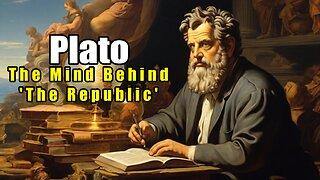 5:32
5:32
100 Historical Figures
4 months agoPlato Unveiled - The Mind Behind 'The Republic' (427 - 347 B.C.)
129 -
 1:52:57
1:52:57
PhilosophyOverdose
9 months agoPlato's Philosophy - From Socrates to Sartre (1978)
146 -
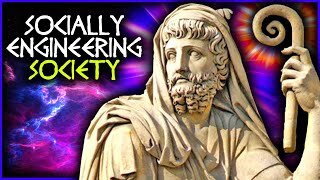 1:59:26
1:59:26
TheWarAgainstYou
1 year agoPlato's Terrifying Secret Doctrines. Greek Philosophy Created From Mystery Religions
1.33K -
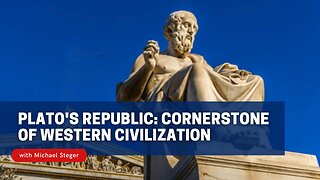 1:08:54
1:08:54
Promethean Action
7 months agoPlato's Republic: Cornerstone of Western Civilization
588 -
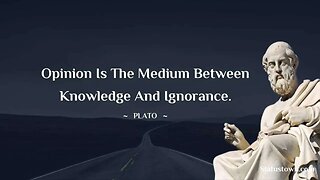 4:03
4:03
Khanphouk
8 months ago25 Famous Quotes of Plato
2 -
 1:06:32
1:06:32
The Cave TV
10 months agoCritias Plato
39 -
 2:50
2:50
Khanphouk
10 months agoBest 20 Quotes of Plato
3 -
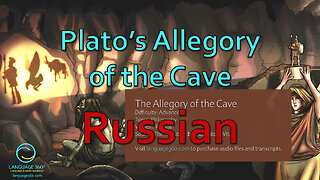 11:17
11:17
Russian is Worth Speaking
6 months agoPlato's Allegory of the Cave: Russian
115 -
 9:36
9:36
politicalhawkpodcast
1 year agoPlato's Republic and why its important
11 -
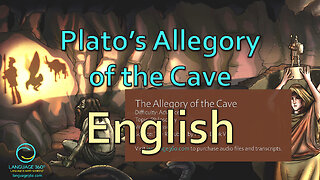 8:35
8:35
Russian is Worth Speaking
6 months agoPlato's Allegory of the Cave: English
109